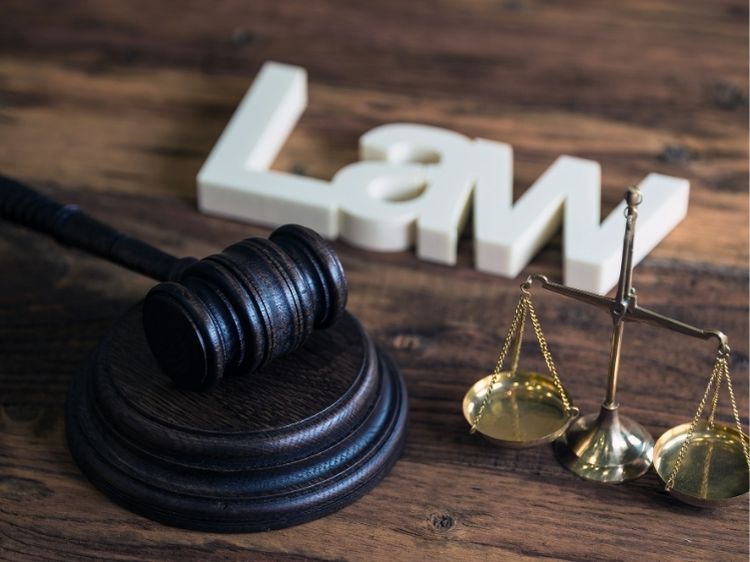Workplace injuries are no joke—one moment you’re doing your job, and the next, you’re dealing with medical bills, lost wages, and uncertainty. If this hits close to home, it’s time to consider hiring an industrial accidents lawyer. These legal pros specialize in workplace injury cases and help workers fight for the compensation they deserve. So, what exactly do they do, and how can they help you? Let’s dive in!
What Is an Industrial Accidents Lawyer?
An industrial accidents lawyer is an attorney specializing in cases involving workplace injuries, industrial mishaps, and safety violations. They advocate for employees who’ve been injured on the job due to unsafe working conditions, equipment malfunctions, or negligence.
When Should You Hire One?
Not every workplace injury requires legal action. However, here’s when you should seriously consider it:
- Your injury is severe or permanent.
- The company disputes your claim.
- You’re offered a lowball settlement.
- A third party (like an equipment manufacturer) is involved.
These are just a few scenarios, but if you’re feeling overwhelmed or unsure about your rights, it’s better to be safe than sorry.
Common Types of Industrial Accidents
Industrial accidents can occur in almost any workplace, but they’re more common in high-risk environments like construction sites, factories, and chemical plants. Here are some examples:
- Slips, Trips, and Falls
Wet floors, uneven surfaces, or poor lighting often cause these accidents. - Machinery Accidents
Equipment malfunctions or improper use can lead to severe injuries. - Explosions and Fires
Mishandling hazardous materials or electrical faults can be catastrophic. - Toxic Exposure
Chemical spills or prolonged exposure to harmful substances can result in long-term health issues. - Falling Objects
Items dropping from heights can lead to head injuries or worse.
If you’ve been involved in any of these situations, you’re likely wondering what your next steps should be. That’s where a lawyer steps in to guide you.
How Does an Industrial Accidents Lawyer Help?
Hiring an industrial accidents lawyer can make all the difference in your case. Here’s what they bring to the table:
1. Case Evaluation
Your lawyer will assess the details of your accident to determine if you have a strong case. They’ll identify who’s responsible—be it your employer, a third party, or both.
2. Gathering Evidence
From medical records to eyewitness accounts and safety reports, a lawyer will compile the necessary evidence to back your claim.
3. Negotiating Compensation
Let’s face it: insurance companies and employers often try to minimize payouts. An experienced lawyer knows how to counter these tactics and negotiate a fair settlement.
4. Filing a Lawsuit
If negotiations fail, your lawyer will take your case to court, presenting a solid argument to get you the compensation you deserve.
5. Explaining Legal Jargon
Legal documents and processes can be confusing. Your attorney will break it all down into plain English so you know exactly what’s happening.
Choosing the Right Industrial Accidents Lawyer
Not all lawyers are created equal. To find the best fit, keep these tips in mind:
1. Look for Experience
An attorney with a strong background in workplace injury cases will know the ins and outs of the system.
2. Check Reviews
What are past clients saying? Reviews and testimonials can provide valuable insights.
3. Ask About Fees
Most industrial accidents lawyers work on a contingency basis, meaning they only get paid if you win. Make sure you understand their fee structure.
4. Evaluate Communication
Your lawyer should be approachable and willing to answer your questions. Communication is key to a successful case.
5. Trust Your Gut
At the end of the day, you need to feel comfortable with your lawyer. If something feels off, keep looking.
What Compensation Can You Expect?
The compensation you may be entitled to depends on the specifics of your case. Here’s what could be on the table:
- Medical Expenses
Covers hospital stays, surgeries, medications, and ongoing treatment. - Lost Wages
Reimbursement for the income you’ve lost while recovering. - Pain and Suffering
Compensation for physical pain and emotional distress. - Punitive Damages
In cases of gross negligence, the court may award extra damages to penalize the responsible party. - Vocational Rehabilitation
Assistance in transitioning to a new role if you’re unable to return to your previous job.
FAQs About Industrial Accidents Lawyers
1. What’s the difference between workers’ compensation and a personal injury claim?
Workers’ compensation is a no-fault system, meaning you can receive benefits without proving employer negligence. A personal injury claim, on the other hand, requires evidence of negligence but may result in higher compensation.
2. How long do I have to file a claim?
The timeline varies by state, but most have a statute of limitations ranging from one to three years. Consult your lawyer as soon as possible to avoid missing the deadline.
3. What if I’m partially at fault for the accident?
In many states, you can still receive compensation even if you share some of the blame. Your payout may be reduced based on your level of fault.
4. Can I sue my employer directly?
In most cases, workers’ compensation laws prevent employees from suing their employers. However, exceptions exist if the employer was grossly negligent.
5. How much does an industrial accidents lawyer cost?
Most operate on a contingency fee basis, taking a percentage of your settlement—typically around 25-40%.
Summary
Dealing with a workplace injury can feel overwhelming, but an industrial accidents lawyer can make the process much smoother. From negotiating with insurance companies to filing lawsuits, these legal experts ensure you’re not left out in the cold. Remember, choosing the right lawyer is crucial to your success, so take the time to find someone experienced and trustworthy.
Authoritative Links
- U.S. Department of Labor: https://www.dol.gov
- Occupational Safety and Health Administration (OSHA): https://www.osha.gov
- American Bar Association: https://www.americanbar.org

